You recently posted some pictures on Instagram from your visit to Thailand last week. One in particular caught my attention, a picture of you with a cute and adorable baby loris on your shoulder. I want to make you aware that the use of wild animals as photo props is an illegal activity in Thailand. It is contributing to the decline of several already endangered species and is responsible for many acts of animal cruelty.
Every year millions of tourists come to Phuket and Patong, many of whom will be given the opportunity to have their photo taken with wildlife, such as the slow loris you encountered on Bangla Road. The invitation to handle one of these exotic animals is very appealing. Their large eyes and fluffy appearance make them irresistible to many people. Sadly, few visitors realise the true cost of their souvenir photograph.
My name is Helen Thompson, I'm a British Zoologist currently working at an animal rescue centre on Phuket that cares for more than fifty primates. Most of these animals were rescued from use in the tourist trade and many suffer from physical and psychological disorders as a result of their prior treatment; photo prop animals are often physically abused, mutilated and drugged to ensure they are safe for tourists to handle.
Much of the work we do involves educating tourists about photo prop animals and the cruelty they commonly endure. For example, few people are aware that the slow loris is venomous, a single bite from which can cause serious infection and even death. Because of this, it is common practice within the photograph and pet trade to cut or pull their canine teeth to prevent them from biting. This is usually done with simple tools such nail clippers or wire cutters and without any form of anaesthetic. Many lorises die as a result of this practice, either due to blood loss or prolonged infection in their teeth and gums.
The name slow loris comes from their iconic behaviour of moving very slowly. Many people find this behaviour endearing but don't release it is actually a response to fear and an indication that the animal is stressed. Most animals used within the photo trade are very young because they are typically docile and more easy to handle. Although they are nocturnal, many are used during the day and will be drugged or physically shaken every few minutes to prevent them from going to sleep. Being continually passed from person to person, along with the ongoing exposure to loud noises and bright flashing lights, is extremely stressful for them and contributes to the death of many of the animals. Most will only survive a few short months.
Sadly law enforcement efforts have had little impact on the photo prop trade here on Phuket because there is a substantial amount of corruption and organised crime in the area. With so many tourists coming to Phuket every year, the trade is certain to continue for as long as visitors are happy to pay for photos with animals.
The act of having a photograph taken with a loris may seem like harmless fun, but in fact it supports an exceptionally cruel trade that results in the needless suffering and death of thousands of these beautiful animals every year. Please help us raise awareness about this problem by speaking out against it and asking your fans not to have their photo taken with exotic animals when abroad. A simple message from you via facebook or twitter will reach millions of people who would otherwise be unaware of the nature and severity of this issue.
Thank you for your time.
Kind regards
Helen Thompson
Volunteer
Gibbon Rehabilitation Project
Phuket

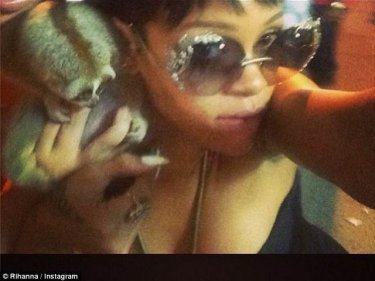



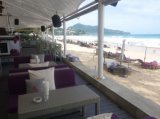


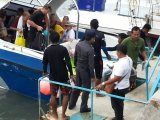
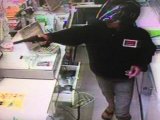


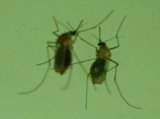




Of course what Helen says is true.
So has this letter actually been sent to her or is Helen hoping that she will read this web page?
Posted by Tbs on September 24, 2013 08:21
Editor Comment:
Pass it on to Riri please, tbs.